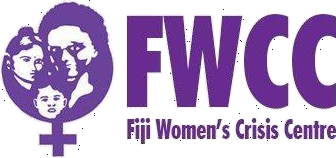A Pacific regional meeting discussing strategies to deal with violence against women and girls heard that some progress has happened to criminalise clearly domestic violence and sexual assault. However, even more work remains to be done to reform laws in Pacific countries relating to violence against women.
Speaking at the sixth quadrennial Pacific regional meeting on the elimination of violence against women and girls at the Novotel hotel in Nadi, Gina Houng Lee, Senior Trainer with the Secretariat of the Pacific Community Regional Rights Resource Team (SPC RRRT) outlined the process of law reform that is required in the region and what the delays would mean for survivors of violence.
“At a regional level we have the political will by the leaders to address sexual and gender-based violence legislation. But then there are challenges with trying to implement these in-country,” said Houng Lee.
“Some of the legislative changes have been piecemeal, only fixing one part of the problem. There is a deep structural problem that we’re trying to deal with. We’re trying to deal with the root causes of the problem.”
Houng Lee said while the argument could be made that domestic violence is covered under the assault laws of Pacific countries, she emphasised the importance of developing laws that specify intimate partner violence and that recognise the unique dynamics involved in such situations.
It is essential that specific laws are developed to deal with violence against women otherwise such offences are often treated as common assault, the same as that of “two men having a brawl on the streets”.
“We have to recognise the intimacy of the relationship; we also have to recognise there’s the family involvement; we have to recognise why it is that women do go back to their violent partners; why is it that they might want them to be penalised but that they may not want them locked up. These are some of the factors that need to be taken into account when developing legislation,” Houng Lee said.
In the Pacific, no country yet has an overall comprehensive integrated legislation encompassing all forms of violence against women. However three countries now have standalone domestic violence legislation.
In Fiji, the Republic of Marshall Islands and Vanuatu, laws exist that specify violence in family or intimate situations and have a legislative basis for a protection order. However, even in these countries the laws are often not well understood by the police and judicial system and as a result are not applied consistently and sometimes not implemented at all.
Last month, the High Court in the Solomon Islands struck down a law which allowed men to rape their wives. The court recognised the law sanctioning marital rape on the basis of the “marriage contract” and the notion that wives were subservient to their husbands, were no longer acceptable and “must be confined to the grave”. This notion is contrary to the Convention on the Elimination of All forms of Discrimination against Women (CEDAW) which the Solomon Islands has ratified.
Organised by the Fiji Women’s Crisis Centre, more than 40 participants are gathered for the regional meeting which is hearing from women and men experienced in the area of gender-based violence as well as activists and support workers from 13 countries across the Pacific.
ENDS
FOR COMMENTS ON THE MEETING OR ON THE ISSUE OF VIOLENCE AGAINST WOMEN AND GIRLS
Please contact FWCC Coordinator Shamima Ali on 9992875.
